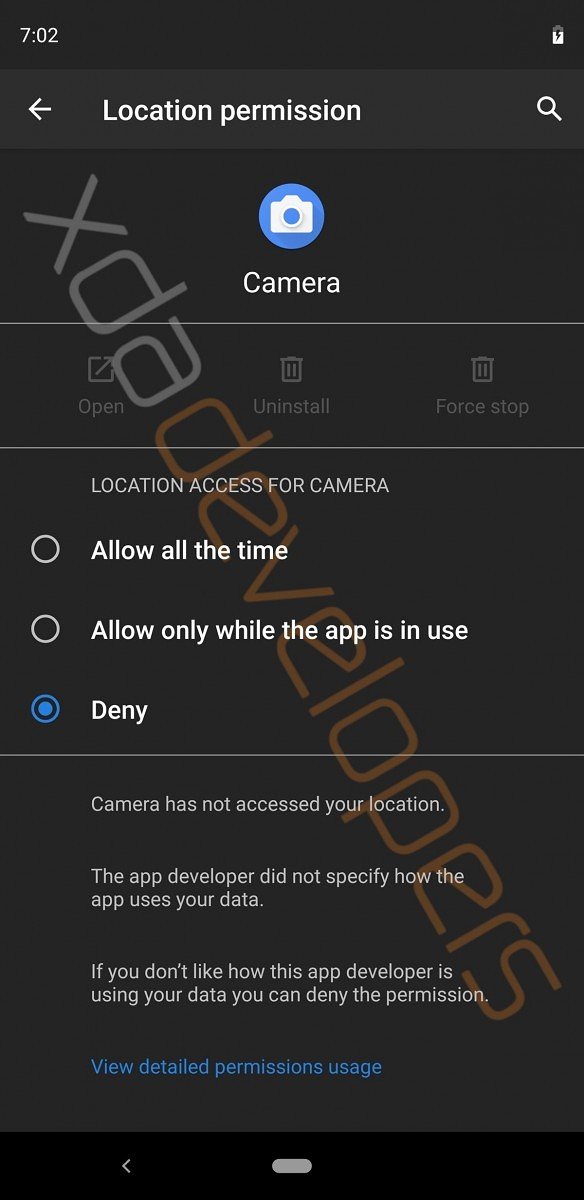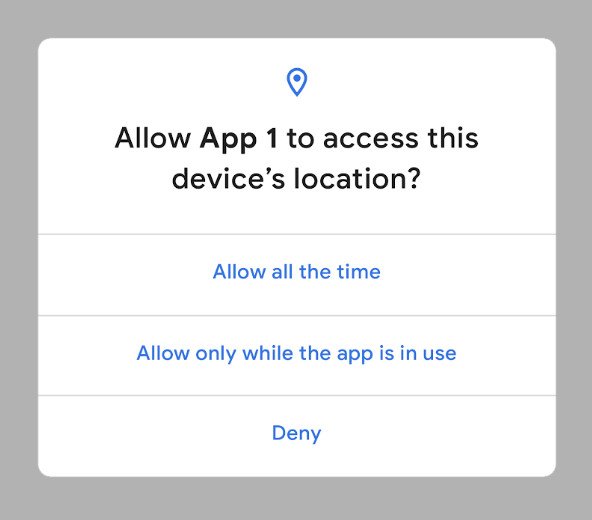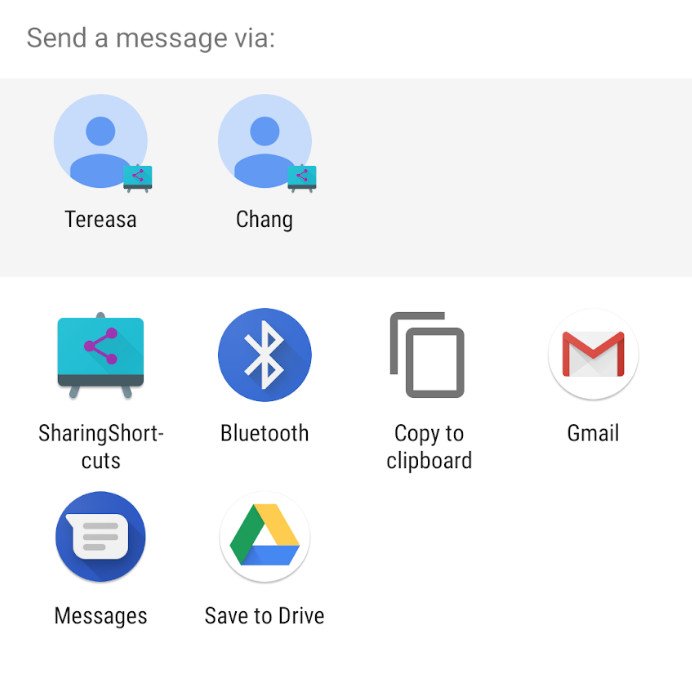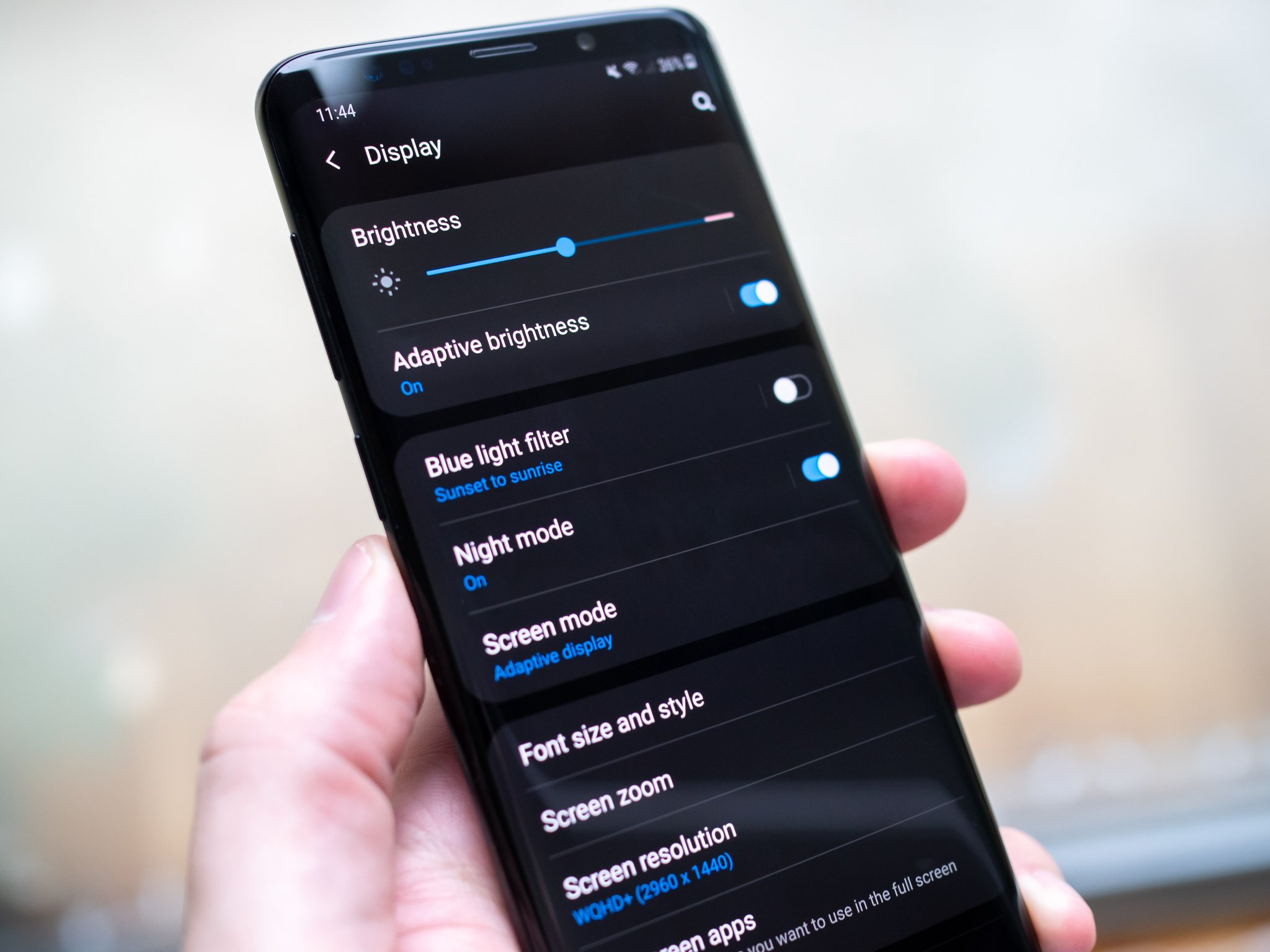Here's what we're expecting from Android in 2019.
Quesito? Quiche? Queen of Puddings?
Whatever it ends up being called, Android Q is the latest upcoming software update for Google's mobile OS, and even though it seems like Pie was just released yesterday, Q will be here before you know it.
If you're looking for the latest news, features, and more for Android Q, you've come to the right place.
The latest Android Q news
March 13, 2019 — Android Q beta launched for the Pixel, Pixel 2, and Pixel 3 series
Following a good deal of leaks and rumors, Google's officially launched its public beta for Android Q!
If you're interested, head over to the Android Beta Program website, log in with your Google account, choose the phone you want to enroll, and you'll then receive an over-the-air update on your Pixel device allowing you to download and install Q.
Join the Android Q public beta
February 18, 2019 — Android Q may replace the back button with a gesture
The guys at XDA-Developers have a new scoop on the upcoming Android Q update: Google may get rid of the software back button in the navigation bar in favor of a left swipe gesture. This is part of the continued renovation of the Android gesture system introduced with Pie, one that's been heavily criticized for feeling incomplete and ineffective.
Google is also experimenting with smoother and simpler transitions between apps, something that will be well appreciated for another rocking a Pixel or other gesture-based phone.
January 30, 2019 — Android Q will feature better facial recognition, system-wide screen recording
Manufacturers like Huawei, OnePlus, and Samsung offer their own facial recognition systems, but it looks like Android Q will have native support for dedicated hardware sensors. The move should make it easier for more manufacturers to leverage a more secure form of facial recognition.
As noted by 9to5Google, Android Q will also have a system-wide screen recording feature that eliminates the need for a third-party solution. The build also has new options for notification channels, including a "Show silently" setting.
January 21, 2019 — Android Q could make it easier for carriers to lock phones to their network
We're really excited to see what Google's been working on for this year's version of Android. Last week's leak proved to be quite promising, but now we're learning about a feature that's maybe coming to the platform that's left us feeling little less enthusiastic.
As spotted by the folks at 9to5Google, new commits were added to the Android Gerrit code over the weekend that are all under a group called "Carrier restriction enhancements for Android Q."
Under these new restrictions, carriers will be allowed to do the following via the SIM card in your phone:
- Whitelist networks that phones can connect to.
- Blacklist networks phones are restricted from using.
- On dual-SIM phones, carriers can deactivate the second SIM if the primary one isn't using an approved SIM.
Also, on the note of networks being whitelisted and blacklisted, carriers can do this not only for other physical networks, but also virtual ones that use the same tower as well (for example, AT&T could lock an AT&T phone from working on Cricket Wireless).
So, yeah — not great stuff.
It's too early right now for us to say if these changes will make their way to the final build of Android Q, but even so, it's not a fun possibility to think about.
January 17, 2019 — Android Q leak reveals system-wide dark theme, desktop mode, and more
The first big leak for Android Q has arrived, and man is it a big one.
The folks at XDA Developers recently got their hands on a leaked build of Android Q and flashed it onto a Google Pixel 3 XL, and as such, we now have our first look at what Android's next from will entail.
Right off the bat, the most exciting thing found in this build of Q is — wait for it — A SYSTEM-WIDE DARK THEME!!
A new option called "Set Dark mode" in the Display settings allows you to have this dark mode always on, always off, or to automatically turn on and off based on the time of day. When it's enabled, you'll see a glorious dark theme go into effect for the Quick Settings, volume controls, the Settings page, launcher, and more. As for applications, there's a new developer setting called "override force-dark." When this is turned on, a dark mode is forced on any applications that don't already have a built-in dark theme of their own.
It's unclear how Android Q's dark mode will work with apps that do have native dark modes, such as Google News, Messages, Google Contacts, etc., but what we do know is that dark mode is here and it looks fantastic.
Other things found in Android Q include a completely revamped permissions UI, new developer settings, some sort of desktop mode, a built-in screen recorder buried in the developer settings, new accessibility features, and more.
With all that said, it's worth noting that this version of Android Q doesn't have any pre-installed Google apps or Pixel-specific customizations, meaning the build we're likely going to see at Google I/O in May could look different from what's shown here.
In any case, what are your initial impressions of Android Q?
All the big details
A public beta is now live for all Pixel phones
Typically with Android releases, Google launches a developer preview for its next Android version in March, followed up with a public beta that anyone can join in May when it hosts its annual Google I/O conference.
This year, Google decided to do things a little differently by pushing its first developer preview and public beta on the same day on March 13, 2019.
You can sign up for the beta on the Android Beta Program website for your Pixel, Pixel 2, or Pixel 3 device. After logging into your accoun and choosing the device you want to enroll in the beta, you'll receive an over-the-air update on your phone to download and install Android Q.
- Sign up for the Android Q beta
- How to install Android Q on your Pixel right now (or downgrade to Pie)
Here are the top 15 features
Like we expect with every new Android version, Android Q is chock-full of all sorts of new features. We'll likely be introduced to even more as beta updates are released throughout the year leading up to the final release, but even right now with Beta 1, there's a lot to unpack.
We'll dive into some of the biggest ones below, but if you want a recap of all the main highlights, be sure to check out the roundup below.
Top 15 Android Q features you need to know about
Big changes coming to permissions
Privacy is a bigger concern than ever before, and with Android Q, Google is implementing some new features for app permissions to help give you a better understanding and more control over what exactly apps on your phone have access to.
According to Google's blog post, apps that ask for your location will now reveal a new pop-up asking you if you want to grant location access all the time, only when the app's being used, or not at all.
Furthermore, Google notes that:
In Android Q, the OS gives users even more control over apps, controlling access to shared files. Users will be able to control apps' access to the Photos and Videos or the Audio collections via new runtime permissions. For Downloads, apps must use the system file picker, which allows the user to decide which Download files the app can access.
The "Permissions usage" page in Settings has been completely overhauled to show which permissions are being used by how many of your apps, the ability to filter by permissions to see which apps are using certain ones, and a new UI for the "App info" page.
New theming options
Being able to customize our phones to the fullest extent is one of the things that makes Android so great, and with Android Q, something exciting could be happening on this front.
Buried in the developer options of Beta 1, you can change the accent color of the entire UI. The options right now include the default blue, green, purple, and black.
While it's entirely possible Google could remove this in a future beta or with the final release, the addition of this and the rumored dark mode (more on that later) lead us to believe that Android Q will have a big focus on allowing users to really make Android their own.
An improved share menu
Android's share menu has been a hot mess for a while now. The core functionality is fine, but it's regularly slow to open no matter what phone you're using. Thankfully, Android Q addresses this. Google briefly mentions this in its blog post, saying that "the share UI can load instantly when it's launched" since the shortcuts are "published in advance", but in day-to-day use, we have a feeling this will be one of Q's best additions.
Speaking of sharing, Android Q also introduces something called "Sharing Shortcuts."
A Sharing Shortcut allows developers to create a new option in the share menu that will share a file/photo/etc. in a specific part of another app much faster than before.
Built-in screen recording is finally a thing
One of our most requested features for Android, built-in screen recording, is live in the first beta of Android Q.
While it is a little tricky to enable right now as it's hidden deep in the developer options, it is functional and allows you to natively record a video of your screen with an optional voiceover and visual indicators for your taps on the screen.
This will hopefully be implemented in a more user-friendly manner in future builds of Q, but it's still exciting nonetheless that it's finally here.
Better support for foldable phones
2019 will be the year that foldable phones finally hit the market, and to ensure the experience of these new devices is as good as can be, Google's optimized Android Q with foldable-specific features and experiences.
According to Google:
To help your apps to take advantage of these and other large-screen devices, we've made a number of improvements in Android Q, including changes to onResume and onPause to support multi-resume and notify your app when it has focus. We've also changed how the resizeableActivity manifest attribute works, to help you manage how your app is displayed on foldable and large screens.
These changes are obviously meant for developers, but in the end, it should result in Android Q being optimized correctly for foldables of all shapes and sizes.
A system-wide dark mode might be happening
For as long as we can remember, one of the most heavily-requested features for Android has always been a system-wide dark theme. Each past Android release has been met with rumors that it would be the one to finally bring us this long-awaited feature, but time and time again, we've been met with disappointment.
With Android Q, however, things should be different (seriously).
A leaked build of Android Q was shared on January 16, and in that build, there's a new option in the Display settings called "Set Dark mode." When this is enabled, a dark theme takes over the look of the Settings, launcher, volume control, and more.
As for how this dark mode will interact with applications, that's currently a bit of a mixed bag.
There's another toggle in the developer settings called "override force-dark," and when this is turned on, any apps that don't have their own built-in dark mode are overridden with a forced one. As for apps that do have a native dark mode, such as Google News, Messages, Google Contacts, and Google Phone, it's unclear how Android Q's dark mode will work with them.
Google didn't mention anything about a dark mode when it announced Android Q Beta 1, but it could be holding that back until Google I/O in May. We'll keep you posted.
6 things we want to see
Android 9 Pie is a pretty great version of Android, but as with all things in life, it's not perfect. The gestures aren't as intuitive as we'd like, there's no system-wide dark mode, etc.
We created a wish list of the top 6 things we're hoping to see the most in Android Q, some of which are pretty reasonable with a couple being a little more far-fetched.
If you want to check out the full list and talk with other readers in the comments about what you want to see, you can do so at the link below.
Top 6 things we want to see in Android Q
What will Android Q be called?
Perhaps the most important question of all — what will Android Q be called?
There aren't a lot of dessert names that begin with Q that immediately come to mind, but some possibilities are:
- Queen of Puddings
- Quiche
- Quesito
- Quindim
- Queijadas
We're really stretching with a lot of those considering that many of them are desserts only known in specific countries all around the globe, so if you have any better suggestions, feel free to let us know in the comments below.
When will it be released?
As of March 13, 2019, Android Q Beta 1 is out in the wild and available to download on the Pixel, Pixel 2, and Pixel 3 series. According to Google, Beta 2 will follow in early April, Beta 3 will be released in early May (likely during Google I/O), and Beta 4 will land in early June.
Following all of that, Q3 will see the launch of Beta 5, Beta 6, and the final public release.
from Android Central - Android Forums, News, Reviews, Help and Android Wallpapers
















0 comments: